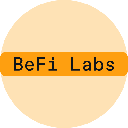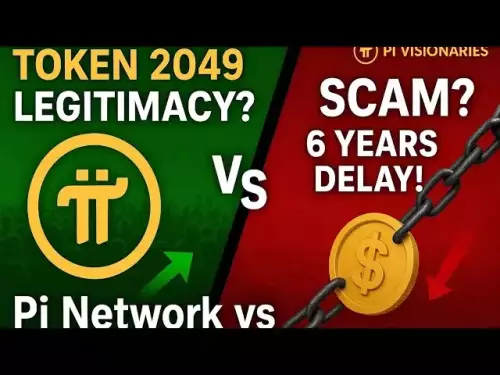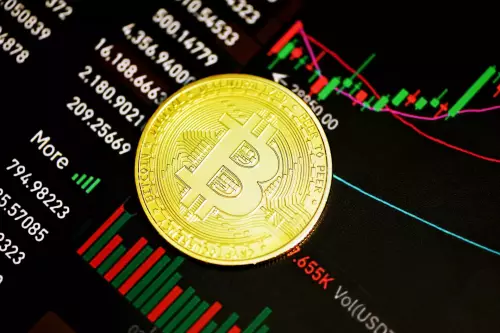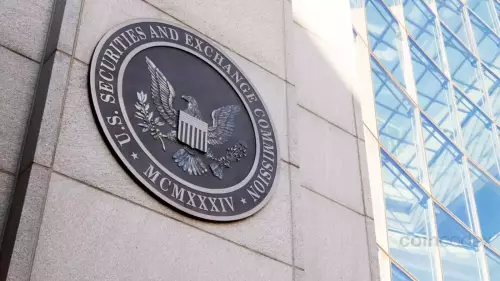 |
|
 |
|
 |
|
 |
|
 |
|
 |
|
 |
|
 |
|
 |
|
 |
|
 |
|
 |
|
 |
|
 |
|
 |
|
Cryptocurrency News Articles
Ethereum L2, Starknet, and Bitcoin Staking: A New Era for DeFi?
Sep 15, 2025 at 07:32 pm
Starknet integrates Bitcoin staking, enabling BTC holders to participate in network consensus and earn rewards. Discover the implications for DeFi.

Ethereum L2, Starknet, and Bitcoin Staking: A New Era for DeFi?
The Ethereum L2 landscape is buzzing with activity, especially with Starknet's latest move: integrating Bitcoin staking. This aims to allow Bitcoin (BTC) holders to join the evolving decentralized finance (DeFi) space. Let's dive into what this means for the future of DeFi.
Starknet's Bold Move: Integrating Bitcoin Staking
Starknet has officially integrated Bitcoin into its staking mechanism, enabling BTC holders to participate in network consensus and earn rewards starting September 30, 2025. This upgrade went live recently, marking a significant step in bridging Bitcoin with the Ethereum-based DeFi ecosystem.
Under this system, Bitcoin contributes 25% of the network’s staking power, while Starknet’s native token, STRK, accounts for the remaining 75%. Supported BTC wrappers at launch include WBTC, LBTC, tBTC, and SolvBTC, with the possibility of additional wrappers being added via governance. The unstaking period has also been reduced from 21 days to just 7, offering stakers more flexibility.
Why This Matters: Bitcoin's Role in DeFi
Historically, Bitcoin has been somewhat isolated from the DeFi boom on Ethereum, largely due to technical constraints. Recent developments, including token wrapping and Bitcoin-specific layer 2 networks, have begun to bridge this gap. Starknet's integration is a prime example, tapping into Bitcoin's staggering liquidity base and channeling it into dApps within the STRK ecosystem.
DeFi developers can now leverage this BTC liquidity to build innovative lending platforms, yield strategies, and derivatives markets. This move could make Starknet a more attractive platform for cross-chain decentralized finance (DeFi) undertakings.
The Rise of BTCfi
This development reflects the broader growth of BTCfi, where BTC is increasingly being used in DeFi to earn rewards, participate in governance, and power cross-chain applications beyond simple holding or trading. Other platforms like Kraken have also partnered with Babylon Labs to provide Bitcoin staking services, indicating a growing trend.
Potential Concerns and Criticisms
While the integration is largely seen as positive, some critics argue that it could render STRK less valuable for holders. The concern is that STRK might become mere inflation fuel, printed to pay devs and reward wrapped BTC stakers. However, Starknet promises to democratize the DeFi landscape by tapping into Bitcoin’s robust liquidity.
Looking Ahead
The integration of Bitcoin staking on Starknet represents a significant step forward in the evolution of DeFi. By bridging the gap between Bitcoin and Ethereum's layer 2 solutions, Starknet is paving the way for new opportunities and innovations in the decentralized finance space.
Whether you're a Bitcoin maximalist, an Ethereum enthusiast, or just a DeFi degen, keep an eye on Starknet. It looks like they're just getting started, and who knows? Maybe your next big crypto win will come from staking some good ol' BTC on a cutting-edge L2. Cheers to that!
Disclaimer:info@kdj.com
The information provided is not trading advice. kdj.com does not assume any responsibility for any investments made based on the information provided in this article. Cryptocurrencies are highly volatile and it is highly recommended that you invest with caution after thorough research!
If you believe that the content used on this website infringes your copyright, please contact us immediately (info@kdj.com) and we will delete it promptly.






























































